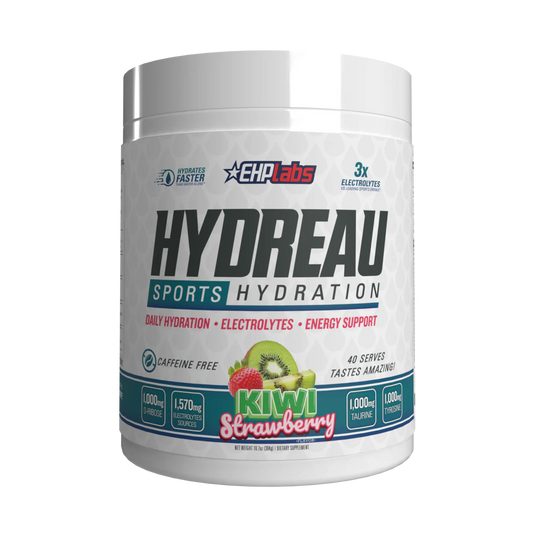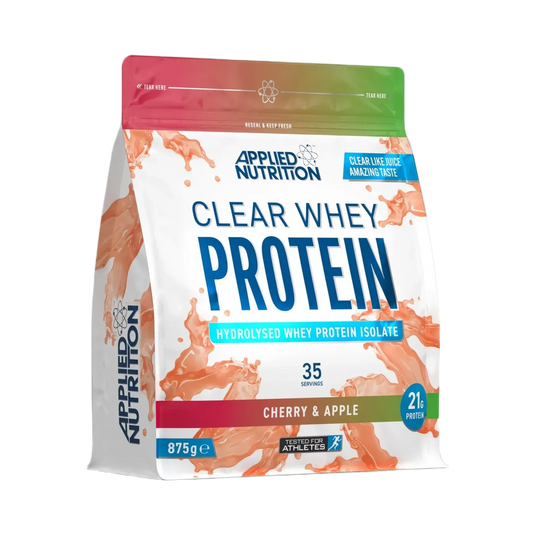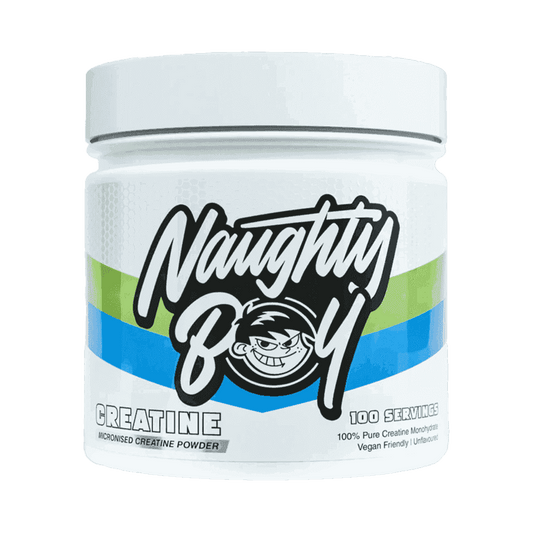Mental focus is talked about as if it’s a personality trait — something you “have” or “don’t have.” But when you zoom out and look at how the brain actually works, focus isn’t psychological at its core. It’s biochemical. The clarity you feel in the morning, the fog you feel after lunch, the sharpness that appears after certain meals, the concentration that collapses at 3pm — all of it is governed by biology first, psychology second.
Your brain is an energy-hungry organ. It’s only around 2% of your total bodyweight, yet it consumes roughly 20% of your daily calories. It runs on an incredibly precise cocktail of glucose, amino acids, fatty acids, vitamins, minerals, electrolytes, water, and oxygen. When these ingredients are delivered in the right amounts, the brain operates like a high-performance machine. When the supply drops — even slightly — everything from memory to reaction time to motivation suffers.
This is why meals matter far more for mental clarity than most people realise. A well-timed meal can improve your ability to think, focus, plan, and analyse more than caffeine ever could. And it’s also why supplements fit naturally into the conversation — not as shortcuts, but as stabilisers. Products like Applied Nutrition Multi-Vitamin Complex, Supplement Needs Omega 3, Naughty Boy Prime Creatine, Applied Nutrition Clear Whey, and EHP Labs Hydreau don’t magically create focus; they reinforce the biological systems that make focus possible.
Let’s explore how nutrition — real meals, not hacks — shapes mental performance at every level.
Why Eating Helps You Focus More
The brain thrives on consistency. It needs a steady supply of glucose for energy, amino acids for neurotransmitters, and micronutrients for metabolic reactions. When you eat a balanced meal, you provide long-lasting fuel that keeps cognitive performance stable.
But when people feel sharp after eating, it isn’t simply because they’re “full” — it’s because the brain’s fuel tank suddenly has what it needs.
Meals with protein boost the amino acids needed to make dopamine (motivation) and norepinephrine (focus). Healthy fats support membrane fluidity, which affects memory and signal transmission. Carbohydrates deliver glucose that keeps thinking smooth and predictable. Vegetables and fruits provide antioxidants that protect neurons from stress.
Meanwhile, a product like Applied Nutrition Clear Whey can serve as a perfect “in-between meal” option. It gives the brain amino acids without the post-meal heaviness that often worsens fatigue. Light, refreshing, and easy to digest, it can prevent the mental dips that come from long gaps between meals.
If you want mental clarity, eating isn’t optional — it’s neurological maintenance.
Meals That Actually Improve Focus
The meals that improve cognitive performance have one thing in common: balance. When protein, complex carbs, healthy fats, and micronutrients are combined, the body releases energy slowly rather than in spikes.
This means:
-
No surges.
-
No crashes.
-
No jittery hyperfocus followed by a crash into fog.
-
Just stable, even-paced mental performance.
Meals like salmon with rice and greens, oats with whey and berries, Greek yoghurt with nuts, or chicken with quinoa and vegetables all create an environment where the brain can think clearly, process information efficiently, and stay focused for hours.
Hydration amplifies this effect. Mild dehydration — even as little as 1–2% — is enough to slow cognitive speed and increase mental fatigue. Most people are dehydrated without realising it, especially in the morning. Electrolytes such as EHP Labs Hydreau help restore the minerals responsible for nerve firing, which can quickly sharpen attention without caffeine.
Good food fuels clear thinking. Good hydration keeps it going.

How to Reduce Brain Fog Through Nutrition
Brain fog often feels mysterious — a cloudiness that arrives without warning. But nutritionally, it is one of the easiest symptoms to explain.
Low blood sugar? Fog.
Poor hydration? Fog.
Under-consuming protein? Fog.
Micronutrient deficiencies? Fog.
Low Omega 3 intake? Fog.
High stress without proper nutrition? Fog.
Fog isn’t a character flaw — it’s a fuel imbalance.
For example, Omega 3 plays a significant role in reducing neural inflammation, supporting memory, stabilising mood, and keeping neural pathways “lubricated.” Supplement Needs Omega 3 provides the EPA and DHA that many people lack, especially if they don’t eat oily fish regularly.
Meanwhile, a multi-vitamin like Applied Nutrition Multi-Vitamin Complex helps cover micronutrient gaps — the vitamins and minerals required to convert food into energy, maintain neurotransmitter balance, and prevent fatigue that builds quietly over time.
Meals and supplements complement each other: meals supply the raw materials, supplements backfill anything missing.
Are You Better Focused Hungry or After Eating?
This is a surprisingly complex question. Some people feel sharper when slightly hungry, and others feel best after eating. Why?
It comes down to how stable your blood sugar is, how your body handles carbohydrates, how sensitive your nervous system is to stress, and how consistent your protein intake is.
People who feel “focused when hungry” are often experiencing elevated cortisol — the stress hormone — rather than genuine clarity. It’s a false high. Eventually, cortisol burns out and fatigue takes over.
People who feel sharp after eating are responding to stable glucose and amino acid availability.
The goal isn’t to feel focused only when hungry or only after meals — it’s to create a system where both states feel stable. That means eating meals that digest smoothly and fuelling gaps with easy options like Clear Whey, fruit, yoghurt, or nuts.
Steady beats spiky.
Every time.

How Food Fuels — or Fails — Your Brain
Food influences your brain through six primary mechanisms:
1. Glucose availability
When glucose drops, concentration collapses.
When it’s too high, you feel jittery.
Stable glucose = stable thinking.
2. Neurotransmitter production
Protein becomes amino acids, which become neurotransmitters.
Low protein intake means low dopamine, low focus, and low motivation.
3. Omega 3 fatty acids
These fats form the structure of neurons and influence cognition, mood, and inflammatory balance.
4. Micronutrient function
Vitamins and minerals allow your brain to convert food into energy.
Deficiencies produce fatigue even if you “eat well.”
5. Hydration
Water supports blood flow and nutrient transport.
Electrolytes support electrical signalling.
6. Creatine and ATP availability
Creatine isn’t just for muscles.
It supports brain cell energy production.
Naughty Boy Prime Creatine fits perfectly here — not only for strength but for mental speed.
Brain science is straightforward:
if you feed the brain consistently, it performs consistently.

Nutrition and Brain Performance Across the Day
Your mental energy naturally fluctuates across the day based on cortisol, hormones, hydration, sleep, and food intake. But eating patterns can make those fluctuations smoother or more chaotic.
A typical modern pattern looks like this:
-
Skip breakfast → brain runs hot on cortisol → mid-morning crash
-
Coffee instead of food → jittery focus → later fatigue
-
Heavy lunch → digestion steals blood flow → afternoon fog
-
No afternoon snack → another crash → caffeine top-up → poor sleep later
-
Poor evening nutrition → next day starts at a deficit
Your body isn’t failing you — the fuel cycle is.
A better rhythm looks like:
-
Morning hydration + light protein
-
Balanced lunch
-
Mid-afternoon protein or fruit
-
Consistent hydration
-
Structured evening nutrition
Focus becomes something you maintain, not something you chase.
Meals That Build Sustained Mental Energy
Sustained mental energy doesn’t come from stimulants — it comes from meals that digest evenly, release energy steadily, and don’t leave you crashing.
Meals for long-lasting clarity include:
-
Eggs with wholegrain toast
-
Oats with Clear Whey and berries
-
Greek yoghurt with nuts and honey
-
Chicken with quinoa and vegetables
-
Salmon with potatoes and greens
-
Stir-fried tofu with rice
-
Fruit paired with protein
Every one of these options stabilises your energy curve. They’re not heavy on digestion, they don’t spike blood sugar, and they provide amino acids to support neurotransmitters.
Hydration ties everything together.
Most people think their fatigue is sleep-related when it’s actually hydration-related.
Electrolytes turn water into actual brain fuel — which is why Hydreau has become a quiet essential for people who think hard and train hard.

Meals, Mood, and Clarity Are All Connected
Mood and focus share the same biochemical engines.
When your blood sugar drops, you get irritable.
When your hydration drops, your patience drops.
When Omega 3 is low, your resilience weakens.
When protein is low, motivation plummets.
When sleep is compromised due to poor nutrition, everything unravels.
Nutrition-centric focus isn’t about eating “clean” — it’s about eating in a way that supports your emotional state, your cognitive performance, and your stress levels simultaneously.
Good meals don’t just fuel productivity; they stabilise your entire mental environment.
Why the Afternoon Crash Happens — and How to Prevent It
The afternoon crash is one of the clearest examples of how nutrition impacts cognition.
Typical triggers include:
-
Meals too high in quick carbs
-
Low or inconsistent protein
-
Dehydration after hours without water
-
Micronutrient drop-off
-
Sudden glucose crash
The fix isn’t complicated:
-
Eat protein with lunch
-
Add slow carbs, not sugary ones
-
Rehydrate at midday
-
Use a light protein snack in the afternoon
A Clear Whey shake at 3pm is one of the most effective ways to avoid fog — light, refreshing, full of amino acids, and stabilising without heaviness.
Meals vs Supplements: Working Together
Meals are the foundation of mental performance; supplements are the precision tools that fill unavoidable gaps.
Applied Nutrition Multi-Vitamin Complex
→ Backfills micronutrient dips that worsen fatigue.
Supplement Needs Omega 3
→ Supports cognition, memory, and stress resilience.
Naughty Boy Prime Creatine
→ Increases ATP availability inside brain cells, improving mental processing speed.
Applied Nutrition Clear Whey
→ Provides amino acids without digestive heaviness, supporting neurotransmitter formation.
EHP Labs Hydreau
→ Restores electrolytes needed for nerve firing and sharp cognitive output.
This isn’t supplementation as a “shortcut” — it’s supplementation as support for the systems that meals already feed.

A High-Focus Day of Eating
Here’s what a realistic day might look like if mental focus is the goal:
Morning — Hydrate + Light Protein
Water with electrolytes (Hydreau)
Clear Whey shake and fruit
Or eggs with toast
Mid-Morning — Small Anchor Snack
Fruit, yoghurt, nuts, or another source of amino acids
Lunch — Balanced, Not Heavy
Protein + slow carbs + greens
Think chicken and rice, salmon and potatoes, tofu and noodles
Afternoon — Fog Prevention
Clear Whey
Fruit
Small protein snack
Evening — Recovery and Mood Stability
A balanced evening meal
Omega 3
Multi-vitamin
This isn’t restrictive — it’s functional.
Your brain performs best when your fuel matches its operating system.
Final Truth: Mental Focus Is a Fuel System, Not a Mindset Problem
Focus isn’t about working harder.
It’s not about pushing through fatigue.
It’s not about superhuman willpower.
It’s about fuelling the brain in a way that allows it to perform at its full capacity.
People who eat well think clearly.
People who hydrate well concentrate deeply.
People who stabilise their glucose remain consistent.
People who supplement intelligently stay sharp even on busy days.
Your brain is a biological engine.
Meals are the fuel.
Supplements are the tuning tools.
Focus is the output.
If you want sustained concentration — not lucky bursts — the answer isn’t motivation.
It’s nutrition.





